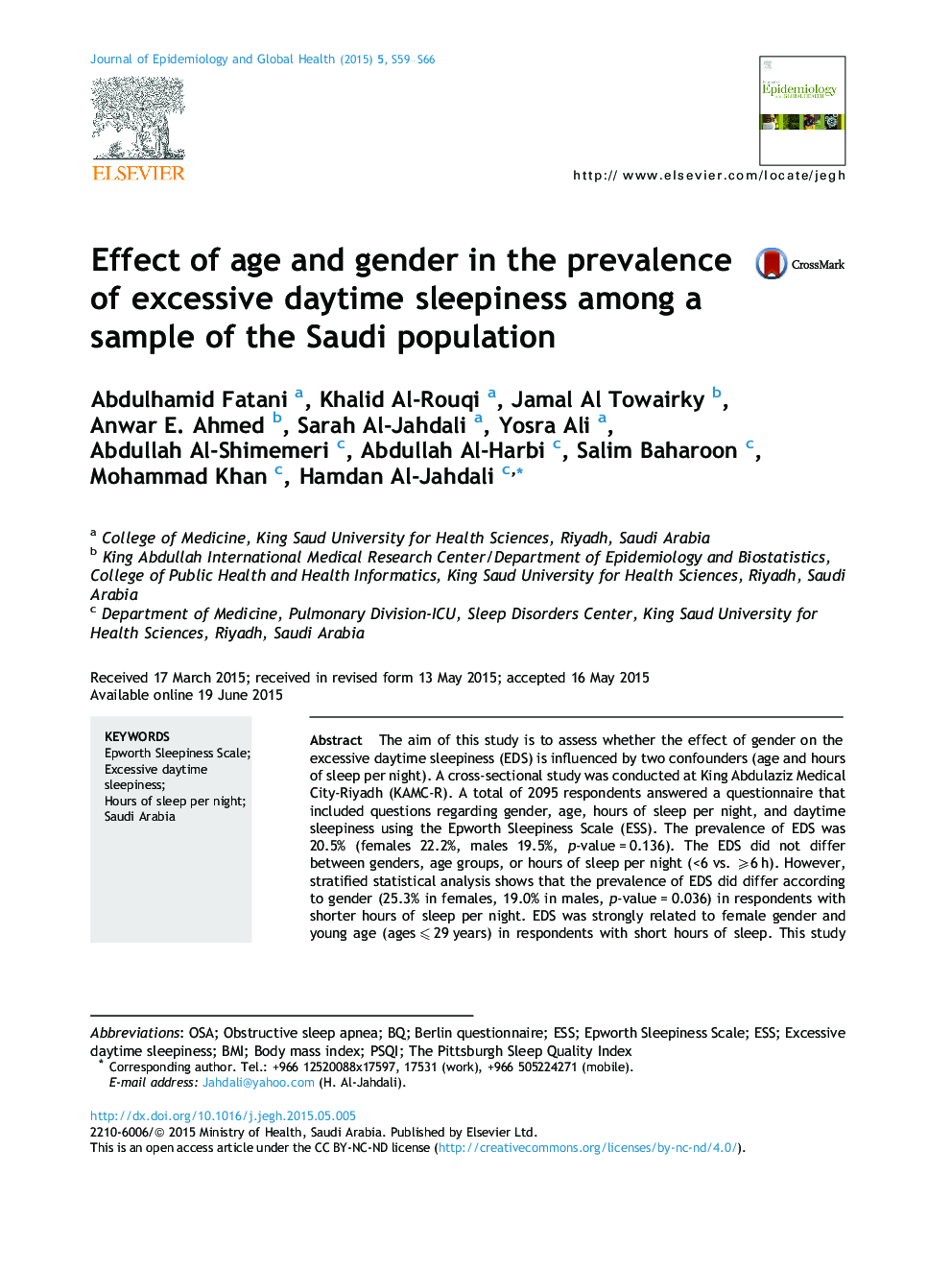| Article ID | Journal | Published Year | Pages | File Type |
|---|---|---|---|---|
| 3327532 | Journal of Epidemiology and Global Health | 2015 | 8 Pages |
The aim of this study is to assess whether the effect of gender on the excessive daytime sleepiness (EDS) is influenced by two confounders (age and hours of sleep per night). A cross-sectional study was conducted at King Abdulaziz Medical City-Riyadh (KAMC-R). A total of 2095 respondents answered a questionnaire that included questions regarding gender, age, hours of sleep per night, and daytime sleepiness using the Epworth Sleepiness Scale (ESS). The prevalence of EDS was 20.5% (females 22.2%, males 19.5%, p-value = 0.136). The EDS did not differ between genders, age groups, or hours of sleep per night (<6 vs. ⩾6 h). However, stratified statistical analysis shows that the prevalence of EDS did differ according to gender (25.3% in females, 19.0% in males, p-value = 0.036) in respondents with shorter hours of sleep per night. EDS was strongly related to female gender and young age (ages ⩽ 29 years) in respondents with short hours of sleep. This study reveals that one out of five of the general Saudi population has EDS. The effect of gender on EDS appeared to be influenced by hours of sleep per night. High EDS strongly related to female gender with short hours of sleep.
